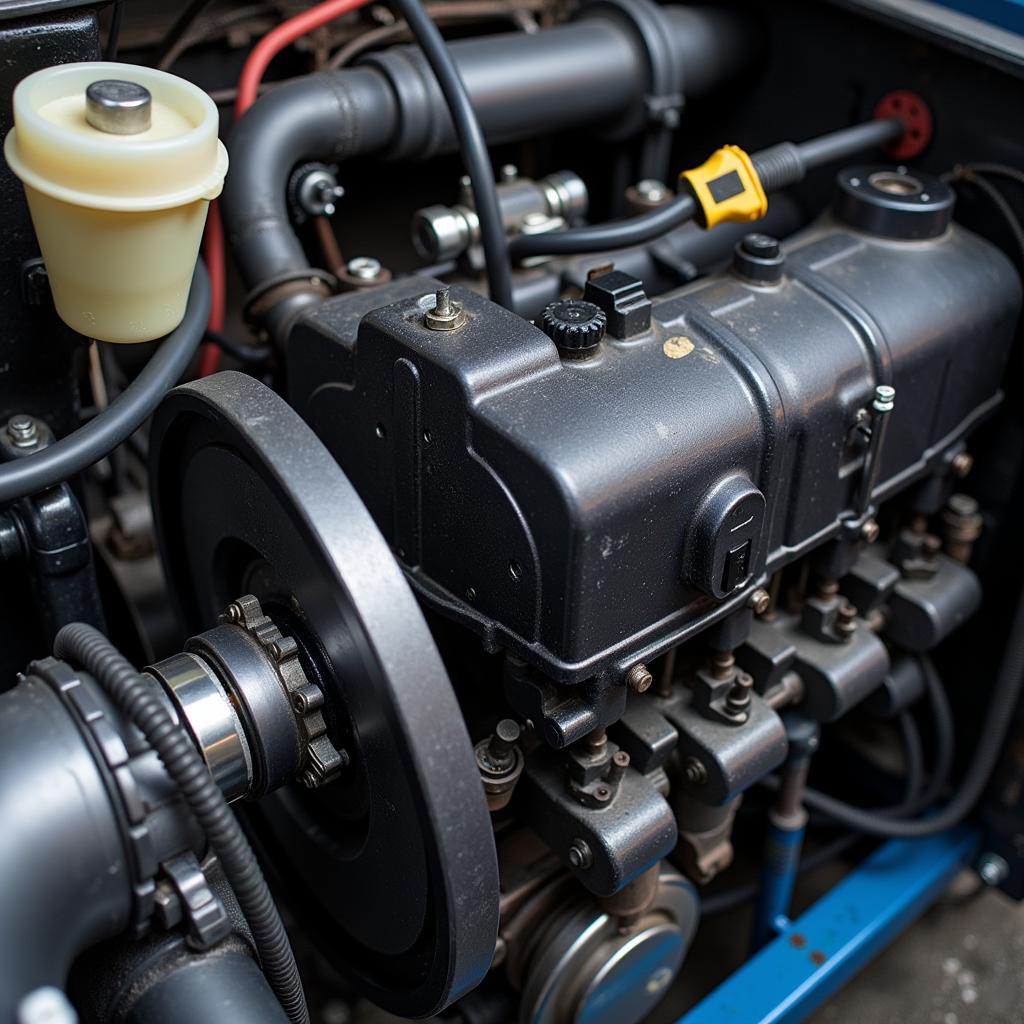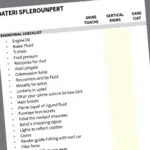Maintaining your diesel engine’s performance and longevity relies heavily on regular servicing. Knowing what to change during a diesel car service ensures you’re getting the most out of your vehicle. This guide delves into the essential components requiring attention during a typical diesel car service.
Understanding Diesel Car Service Intervals
Unlike their gasoline counterparts, diesel engines operate under higher compression ratios, demanding specific oil types and filter changes at more frequent intervals. The exact service intervals vary depending on the make, model, and driving conditions, but a general guideline is every 6,000 miles or every 6 months, whichever comes first.
 Diesel Engine Service
Diesel Engine Service
Essential Components to Change During a Diesel Car Service
While a routine service may encompass various checks and top-ups, several components require replacement for optimal performance:
1. Engine Oil and Oil Filter
Diesel engines produce more soot compared to gasoline engines, making regular oil changes crucial. Using the correct grade of diesel engine oil, as recommended by the manufacturer, ensures optimal lubrication and heat dissipation.
2. Fuel Filter
Diesel fuel often contains more contaminants than gasoline, potentially clogging the fuel system and injectors. Replacing the fuel filter during each service helps maintain a clean and efficient fuel supply.
3. Air Filter
A clogged air filter restricts airflow to the engine, reducing performance and fuel efficiency. Diesel engines, in particular, require a constant supply of clean air for optimal combustion.
4. Cabin Air Filter
Although not directly related to engine performance, the cabin air filter ensures clean air inside the vehicle. It’s good practice to have it replaced during service to maintain a healthy breathing environment.
Additional Checks and Replacements
Beyond the essential components, a comprehensive diesel car service might include:
- Coolant Flush: Diesel engines generate substantial heat, making a coolant flush crucial to prevent overheating.
- Brake Fluid Flush: Maintaining optimal brake fluid condition ensures safe and efficient braking performance.
- Transmission Fluid Change: Depending on the vehicle and driving conditions, changing the transmission fluid can extend the lifespan of the transmission.
- Drive Belts: Inspecting and replacing worn drive belts prevent unexpected breakdowns and ensure proper functioning of engine accessories.
“Regular diesel car servicing, while seeming like an added expense, is an investment. It saves you money in the long run by preventing costly repairs and ensuring your vehicle runs efficiently,” says John Miller, a seasoned diesel mechanic at Miller’s Auto.
Conclusion
Understanding “what to change on a diesel car service” empowers you to take proactive measures in maintaining your vehicle’s health. Adhering to the manufacturer’s recommended service intervals and ensuring the replacement of essential components, you can enjoy a smooth, efficient, and long-lasting driving experience.
Do you know how often you should service your diesel car? Find out more about how often do u service a diesel car. This insightful article provides a comprehensive guide to diesel car service intervals and their importance.


